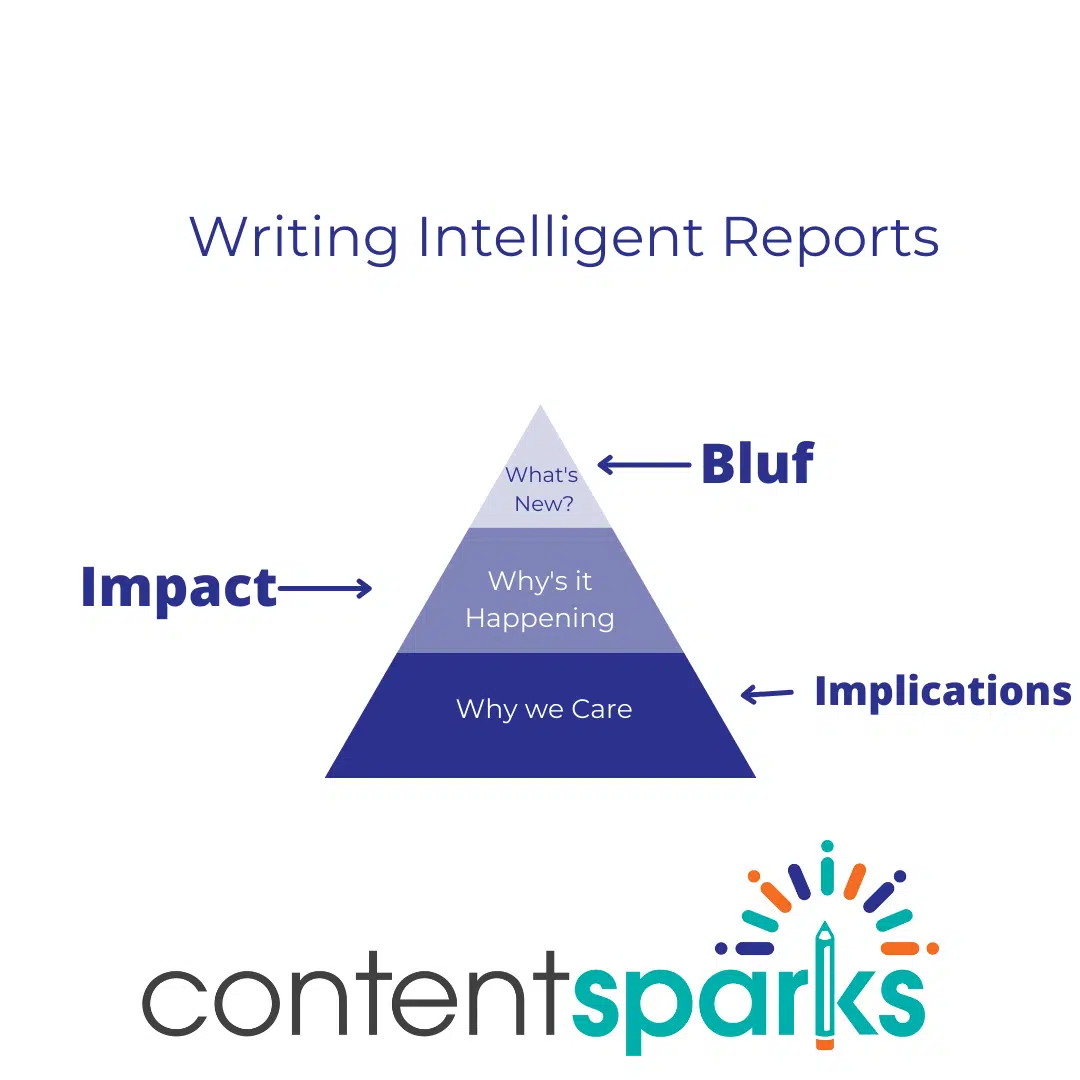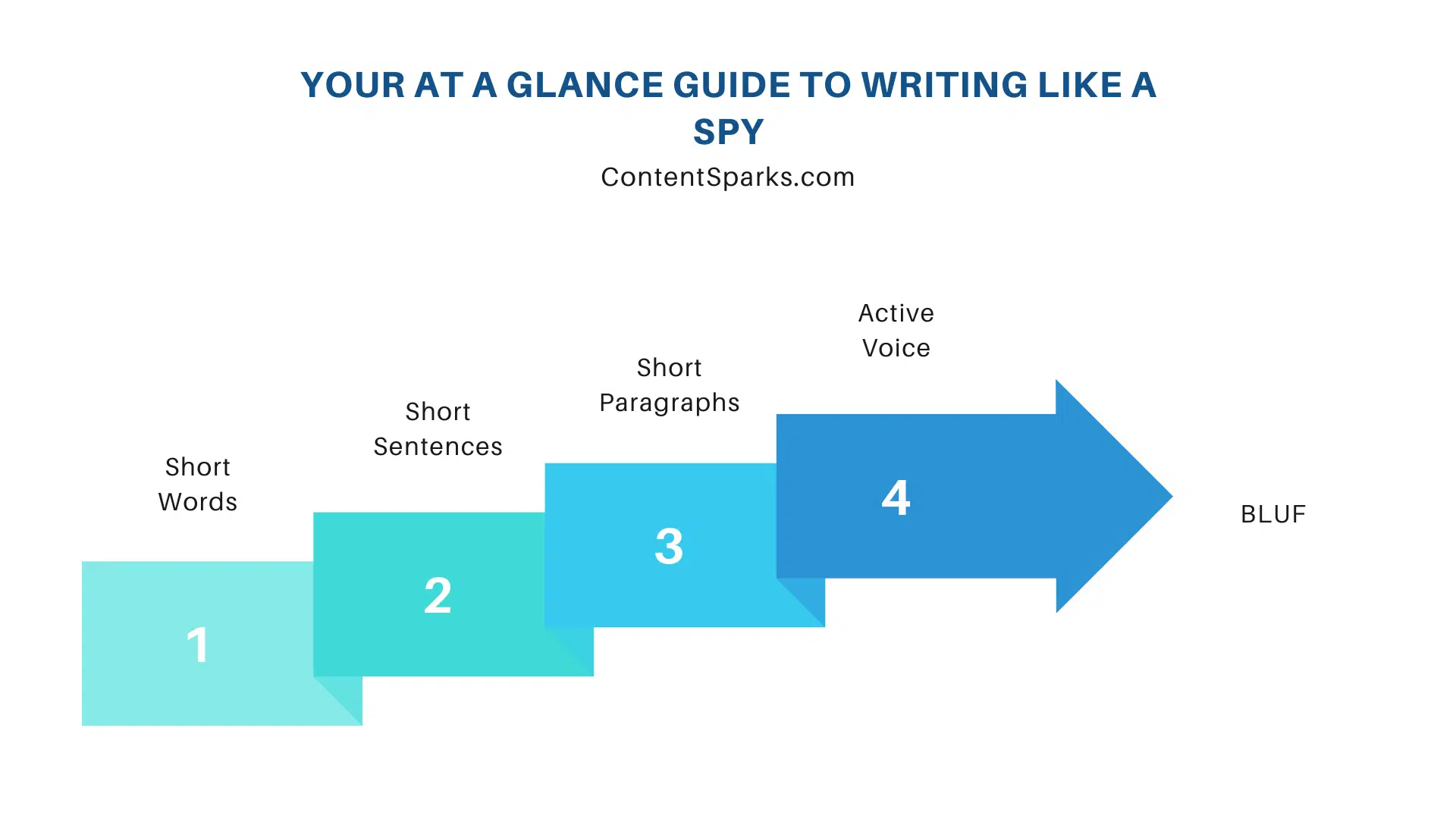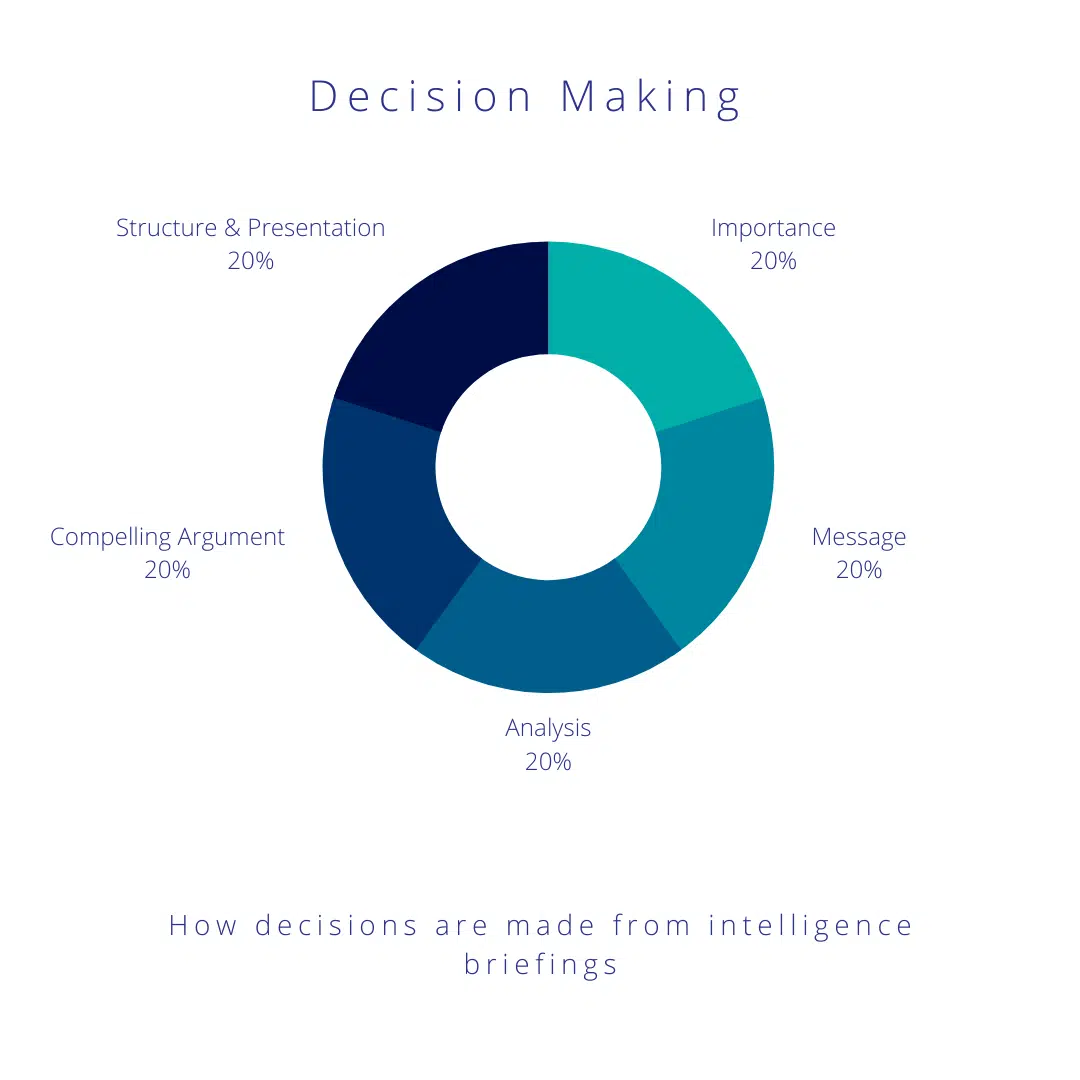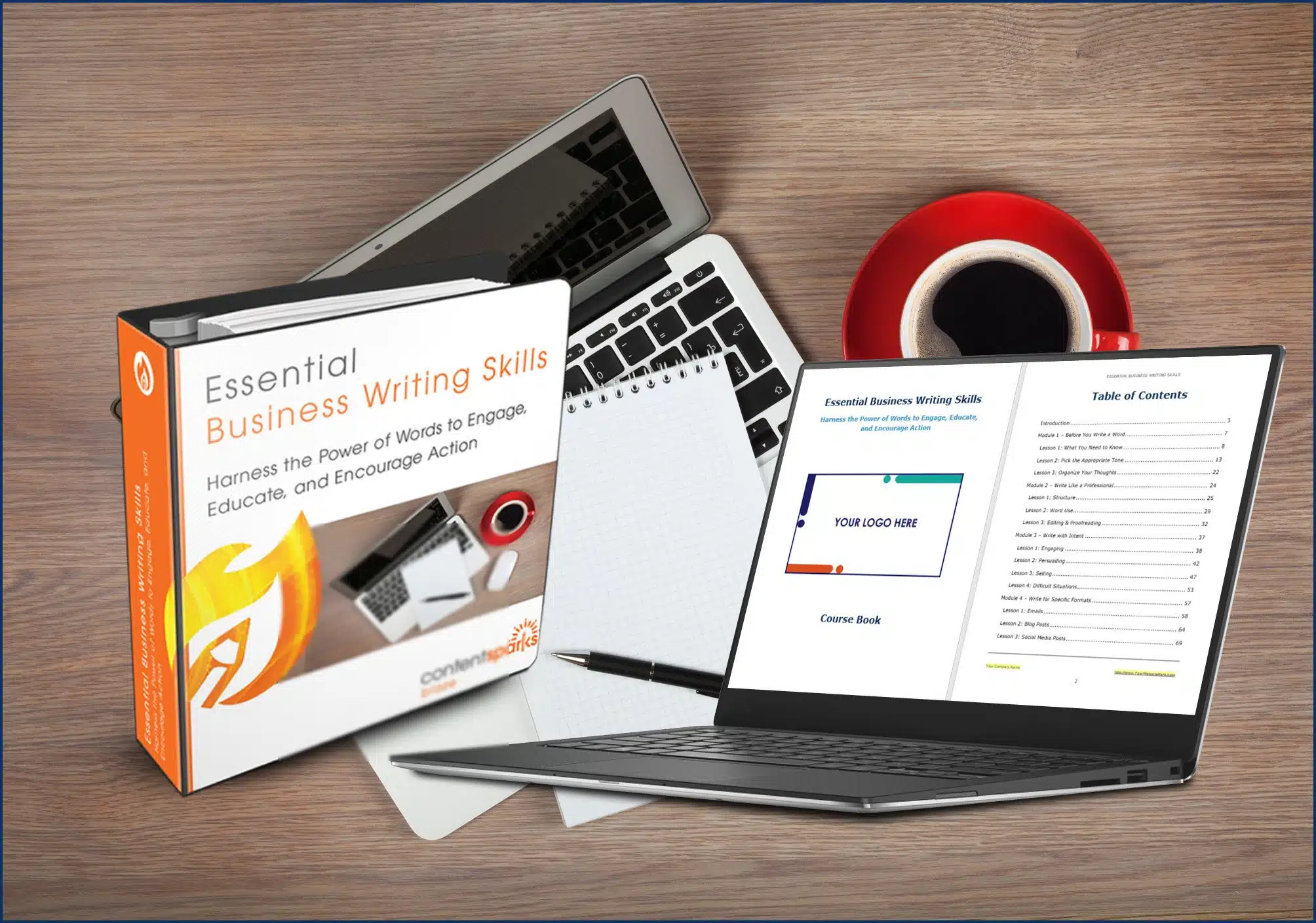Write Like a Spy (or How to Write to Get Decisions)
0 comments
0 comments
When it comes to writing expertly and persuasively, there's no better writer than the intelligence analyst. Their reports have to be both succinct and captivating because everyone from the Pentagon to the President will be reading them.
In this article, we're going to share tips on how to write like a spy. Not because you are a spy, but because your ability to write intelligent reports will change someone's life!
Ready to get started?

Short is the word that defines all intelligence reports.
This sounds like common sense, but in reality? We're all verbose. This means we have to edit, edit, edit. And just when we think there's not enough content left? We need to edit some more. Brevity is clarity.

Intelligence writing is a learned skill. No one is born with the capacity to write excellent intelligence reports. No Analyst's kindergarten teacher ever said to their parents, "Your child uses really persuasive language and created a finger painting to convince me to throw water-filled balloons at the first-graders". This means they've learned the basic skills we're going to outline in this article and then refined them. In other words, they've learned to BLUF
According to Wikipedia:
Bluf stands for Bottom Line Up Front.
BLUF (bottom line up front) is the practice of beginning a message with its key information (the "bottom line"). This provides the reader with the most important information first. By extension, that information is also called a BLUF. It differs from an abstract or executive summary in that it is simpler and more concise, similar to a thesis statement, and it resembles the inverted pyramid practice in journalism.
BLUF is a standard in U.S. military communication whose aim is to make military messages precise and powerful. It differs from an older, more-traditional style in which conclusions and recommendations are included at the end, following the arguments and considerations of facts. The BLUF concept is not exclusive to writing since it can also be used in conversations and interviews.
Note that last line? BLUF is not an exclusive writing concept, but one that can be used in interviews AND conversation. This means you can practice it at any time!
Let's look at the 3 steps to intelligent reports...
Answering ‘What's New?’ includes your BLUF statement. You can expand upon it by adding in any new developments. If there are no new issues, why are you writing the report? What's new is the change that you're seeing or hearing about. You can add the right context. This section should capture the essential elements and hint at the outcome you're looking for.
This section of your intelligence briefing is to give your reader a tiny bit of background to prompt their memory. You can mention any historical context here if needed. Remember: brevity is clarity.
Finish this segment with what will happen to others. What's the impact locally, nationally, and internationally?
In intelligence reports, this part is about the outlook and the impact on your nation's policies. Are there opportunities to advance them, or will there be negative repercussions? Showing the reasons you should care, along with the situation, helps the report reader formulate the overall decision-making process. In marketing, this is known as the "what's in it for me" moment, and it's on everyone's mind.
The above 3 steps are the framework of your intelligence report. You'll find this amounts to around 400-500 words or a sheet of A4 or Letter-size paper. Yes, that means a 12-point font with 1.5 line spacing, for those of you that need to know. But that's not all you need...
You need the following 5 elements as well in order for your spy report to get considered for something other than an outright “No”!

The final check you need to make is the sanity check. If it sounds insane, then it probably is. Where can you adjust your language so it's less sensationalist and more factual?
Grammar and style for intelligence reports are different from how you may be used to writing. We've pulled these tips from the Analysts Style Manual (see sources) and you can see the differences in how dates and measurements are expressed. If you saw a real-life intelligence report, you might think that the date is wrong, or “what the heck is the metric system?”. However, the grammar is not incorrect for this type of document.
Business writing is a skill that will last a lifetime. It's well worth learning, and we'd like to help you with that through our Essential Business Writing Skills course kit. You might not need the writing skills of a spy, but they're very useful in every day business where you have to persuade people to make a great decision.
Essential Business Writing Skills
Teach Yourself. Then teach your audience.


P.S. No intelligence sources were compromised in writing this post.
Tags